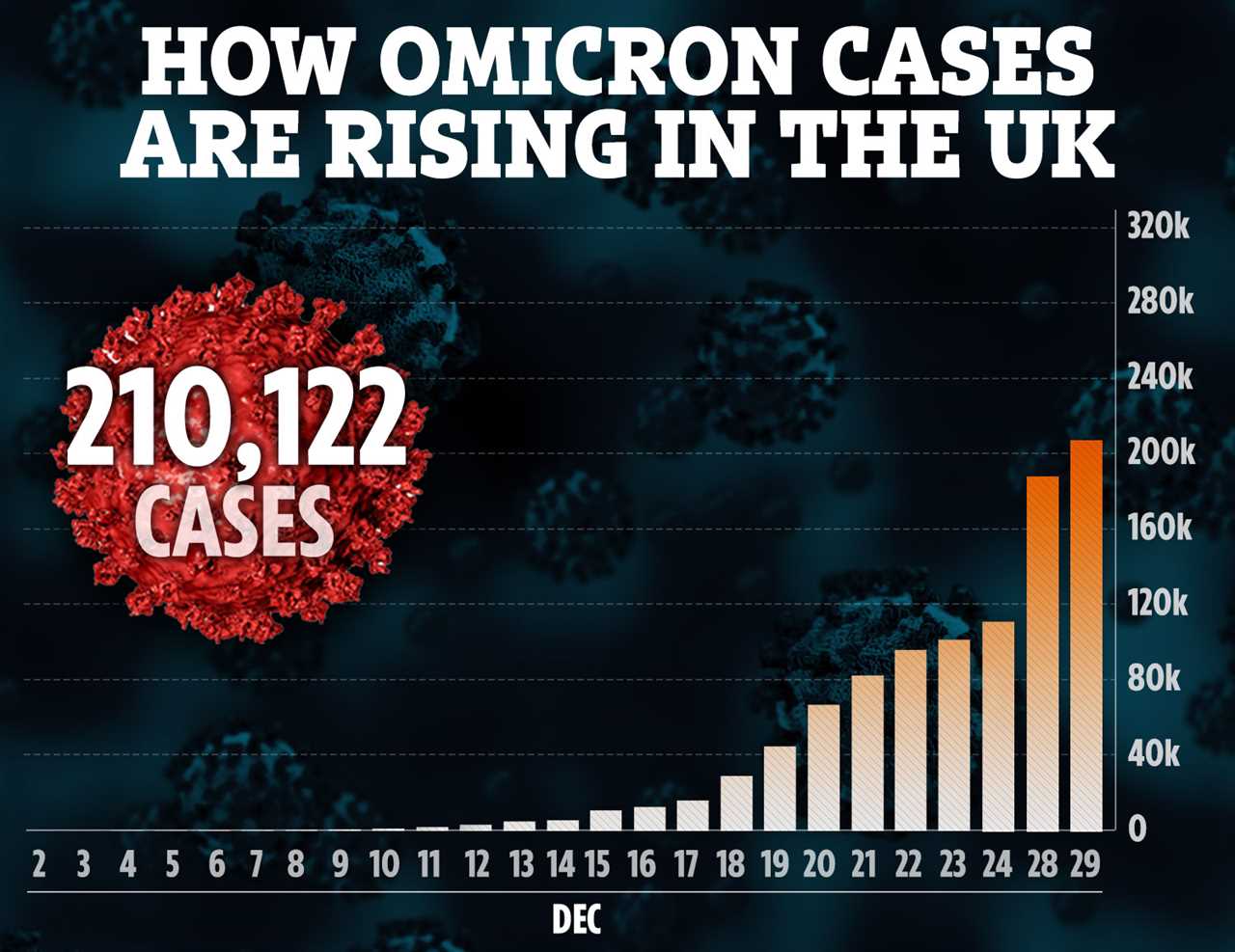BRITS have become fairly obsessed with symptoms of Omicron – carefully watching to see if they have developed any.
They are largely milder than traditional Covid symptoms and present as more cold-like or like flu.

Experts across the globe have highlighted at least eight early warning signs of Omicron you should never ignore.
It’s thought these tend to come on quickly and quite early in the illness, from about two days after exposure.
They seem to last for around five days, but of course can go quicker, and some can linger.
If you have Covid symptoms of any kind, you should get a PCR test and self-isolate until the results come back.
A string of hugely positive studies show Omicron IS milder than other strains, with the first official UK report revealing the risk of hospitalisation is 50 to 70 per cent lower than with Delta.
Covid booster jabs protect against Omicron and offer the best chance to get through the pandemic, health officials have repeatedly said.
Trending In The News’s Jabs Army campaign is helping get the vital extra vaccines in Brits’ arms to ward off the need for any new restrictions.
Infection rates are high – with daily cases breaking records – so if you feel at all unwell, there is a good chance it is Covid.
In the past four days, between 75,000 and 96,000 new cases of Covid have been diagnosed every day.
While estimates say that 67 per cent of these are Omicron, only around 37,000 have been confirmed through genetic testing.

Follow our Covid live blog for all the latest news & stories
The early symptoms
Going by reports from cases in the UK, South Africa and US, these are common early warning signs of Omicron:
- Scratchy throat
- Lower back pain
- Runny nose/congestion
- Headache
- Fatigue
- Sneezing
- Night sweats
- Body aches
It was doctors in South Africa that first said a scratchy throat, congestion, a dry cough and lower back pain were being picked up among Omicron patients.
Ryan Noach – chief executive of Discovery Health, the country’s largest private health insurer – made the comments after analysing some 78,000 Omicron cases.
Unben Pillay, a family doctor practising on the outskirts of Johannesburg, said that while it was still early days, “we are seeing patients present with dry cough, fever, night sweats and a lot of body pain”.
Dr Amir Khan, a British GP, described “drenching night sweats”, the kind “where you might have to get up and change your clothes”.
The ZOE Covid Study, which tracks the outbreak with the help of millions of app users, conducted an initial analysis of symptom data from positive cases in London.
London was selected due to the higher prevalence of Omicron compared to other regions.
The analysis found no clear differences in the early symptoms (three days after a test) between Delta and Omicron.

It said the top five symptoms reported were runny nose, headache, fatigue, sneezing and sore throat.
The CDC – which provides information for Americans – has also found the same symptoms in a group of Omicron patients.
In a new report, it said the most commonly reported symptoms of Omicron appeared to be a cough, fatigue and congestion.
Some of the older more well-known symptoms do not appear to be featuring as much in reports.
For example, a loss of smell and taste has rarely been reported by medics in relation to Omicron, with some saying they don’t think it is a typical symptom. Fever is also less common.
Prof Tim Spector, who leads the ZOE study, said: “Hopefully people now recognise the cold-like symptoms which appear to be the predominant feature of Omicron.”
The King’s College London epidemiologist has been calling on the NHS to change its symptom list for months.
He tweeted that 50 per cent of current Covid cases lack the three traditional symptoms of a cough, fever and loss of smell/taste.






